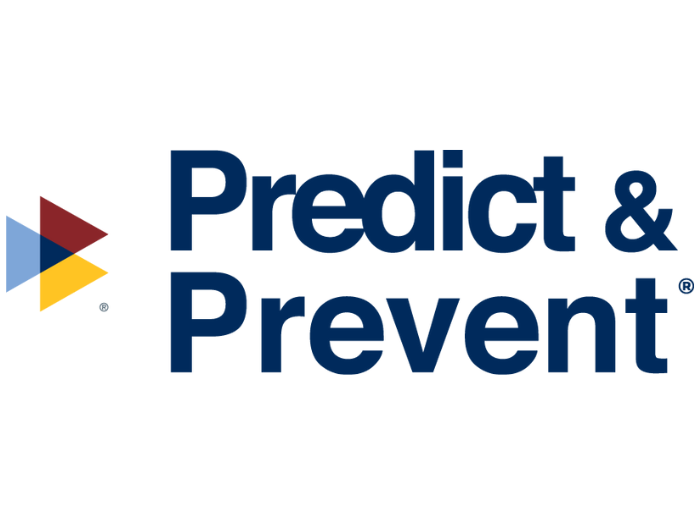Brokerage
Distribution Disruption

Multiline insurance companies have begun to rethink the way they are selling commercial insurance to large organizations, with plans to offer more complex commercial products packaged together with products sold to individuals.
Such plans come as a response to competition from so-called aggregators offering various sorts of insurance and health benefits products to large employers, as well as individuals, said Michael Herman, principal for advisory services with KPMG LLP.
“There’s this convergence happening that is forcing a lot of companies to rethink how they sell across lines, from commercial property/casualty to consumer P&C and life-based products,” he said.
“[The bottom line is:] Don’t complain when the roofs leaks if you chose the cheapest contractor.” — Dan Holden, manager of corporate risk and insurance at Daimler Trucks North America
The ease with which some of the newest entrants to the business can offer coverage online is fueling the trend, he said.
“Millennials in particular perceive P&C insurance as commodities, thinking, ‘I can evaluate price with relative ease, and make a decision on my own,’ ” Herman said. “P&C companies are looking at ways to differentiate their products and services as a function of this commoditization and intense competition.”
Herman said that multiline companies are currently formalizing plans to package commercial products together with certain forms of personal lines such as auto or motorcycle insurance, which their clients’ employees may be interested in.
More and more multiline firms that have relationships with organizations with 1,000 employees or more are looking to lower distribution costs while increasing revenues and policyholder counts this way, said Herman.
“I’m having conversations with a lot of multiline insurers considering this [cross-selling] model,” he said. “They’re saying, if we bundle our products together and sell to a ‘captured’ customer set, we’ll win more, larger deals at a lower cost of sale than we did in the past.”
Traditional brokers will simply have to adapt and learn to sell these new portfolios, he added, or insurers wanting to own and retain more customers might decide to sell to these new commercial/personal lines programs on a direct basis.
Herman noted that the trend in question is a response to premiums shrinking in both the life and property/casualty spaces over the past several years due to competition from aggregators of different kinds and the perceived commoditization of the insurance product.
Where It All Started
For the past 10 to 20 years, companies like ADP and Paychex have harbored insurance units supplying employers with more than just the human resources and payroll-related services these firms were originally known for.

Kevin Hill, VP of Insurance and HR Solutions Services, Paychex
Both ADP and Paychex offer workers’ compensation insurance, for instance, and both companies allow clients to fund their workers’ compensation premiums on a pay-as-you-go basis each month, which allows employers to avoid surprises at year-end, said Paychex VP of Insurance and HR Solutions Services Kevin Hill, based in Rochester, N.Y.
“We now collect [customers’ workers’ comp premiums] on the same frequency as their payroll, which could be weekly, monthly, semi-monthly, or any number of frequencies. We began doing that about 15 years ago, and were pioneers in the market in that sense.”
ADP and Paychex both sell various types of commercial insurance, with Paychex offering commercial auto insurance, for instance, while ADP’s Automatic Data Processing Insurance Agency Inc. (ADPIA) has automated its certificates of insurance offering for workers’ compensation clients that want to access these forms on-demand.
ADPIA is also rolling out a benefits administration platform for its small business insurance clients that integrates payroll, employee benefits and insurance carrier systems.
A New Breed of Aggregator
In the last two or three years, several new types of aggregators have also emerged.
“For several years now you’ve seen rampant growth of venture capital investment in this space,” said Jarett Weinpel, vice president of product management for ADP Insurance Services.
“There are several start-up companies offering platforms [to employers] that support employee onboarding, benefits administration, time tracking, Affordable Care Act reporting, and more,” said Weinpel.
Some of these companies started as pure-play technology platforms that are earning revenue by becoming the insurance broker for an employer to receive the associated commissions.
Others are organizations with established HR or payroll platforms that expanded into insurance brokerage and benefits administration to offer their clients additional resources.
ADP, for example, was a pioneer in this technology space that expanded into insurance.
“We have established a stand-alone Insurance Services business that is independent, but integrated with our technology platforms, and has provided advisory services for over a decade,” said Weinpel.
But expanding into the insurance space has drawbacks. Zenefits, an online HR software, payroll and benefits company, announced the layoffs of 17 percent of its workforce.
VentureBeat.com recently reported that Zenefits is facing scrutiny over the way it sells insurance policies to small businesses, with a recent BuzzFeed report indicating that more than 80 percent of its deals in Washington State were done by unlicensed brokers. This led to company co-founder and CEO Parker Conrad stepping down, replaced by COO David Sacks.

Dan Holden, manager, Corporate Risk and Insurance, Daimler Trucks North America
According to Bloomberg, “Zenefits makes software designed to simplify and automate such HR tasks as health insurance signups. … Under founding CEO Parker Conrad, it also made software that allowed its employees to skirt state regulatory requirements, the company now admits.”
This is the precisely the sort of thing that makes Dan Holden, manager of corporate risk and insurance at Daimler Trucks North America, skeptical when it comes to newcomers professing to offer a solid insurance product.
“As for the general trend, I think payroll vendors view [insurance sales] as an untapped revenue stream. They want to make it as seamless as possible for their existing customers who already believe one insurance company is no better than the other. It’s just a matter of price. A rose is a rose, etc.
“Unfortunately, the buyer may find out later — once a claim has been filed — they got what they paid for.
“[The bottom line is:] Don’t complain when the roofs leaks if you chose the cheapest contractor,” Holden said.
Despite a trend away from traditional brokers toward aggregator companies, ADP’s Weinpel believes “things will settle out over time as companies realize that the technology is only as good as the expertise of the insurance adviser behind it.”
“A small error in plan selection or contribution strategy can erode the benefits of productivity gains from even the best technology platform tenfold,” he said. &










